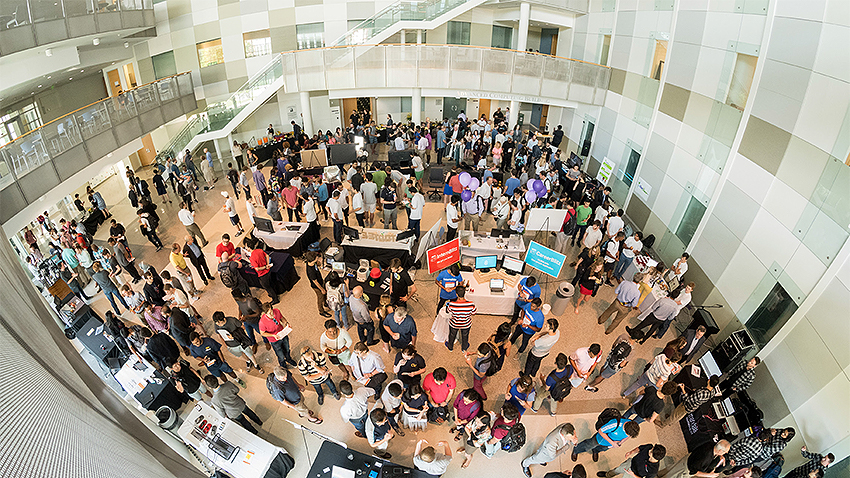Upcoming Events
PhD Defense by Yuan Yang

Dear faculty members and fellow students,
You are cordially invited to my thesis defense on Dec 2nd.
Title: Towards Interpretable and Controllable Machine Learning Models via Logic Reasoning
Date: 12/02/2024
Time: 11:00AM EST
Location: https://gatech.zoom.us/j/94374751336
Yuan Yang
Machine Learning PhD Student
School of Computational Science and Engineering
Georgia Institute of Technology
Committee
1 Dr. Faramarz Fekri, School of Electrical and Computer Engineering, Georgia Institute of Technology (Advisor)
2 Dr. Zsolt Kira, School of Interactive Computing, Georgia Institute of Technology
3 Dr. Larry Heck, School of Electrical and Computer Engineering, Georgia Institute of Technology
4 Dr. Viveck Cadambe, School of Electrical and Computer Engineering, Georgia Institute of Technology
5 Dr. Bo Dai, School of Computational Science and Engineering, Georgia Institute of Technology
Abstract
Modern machine learning models have provided new capabilities across a spectrum of applications in vision, reasoning, and natural language processing. However, these models are criticized for being non-interpretable, data-inefficient, and vulnerable to subtle perturbations such as adversarial attacks and distribution shifts. Addressing these issues remains at the center of developing trustworthy ML systems for real-world applications.
Our research focuses on providing a principled solution to these issues through logic reasoning formalism.
Specifically, we study the fundamental technique of inductive logic programming (ILP) that learns and represents patterns in knowledge graphs as first-order logic (FOL) rules, providing an interpretable approach to various reasoning tasks on structured data:
(1) we investigate the connection between model explanation and logic formalism and propose frameworks for explaining and defending ML models via logic reasoning;
(2) we formalize logic reasoning methods as a novel data programming paradigm and propose data-efficient frameworks for model training and evaluation;
(3) to improve the expressiveness of the ILP technique, we propose to extend the model to the temporal domain and hypergraphs so that one can generalize FOL rules on complex structures
Furthermore, our research explores the integration of large language models (LLMs) with logical reasoning techniques to enhance interpretability, data efficiency, and controllability in machine learning systems. We investigate:
(1) the potential of LLMs in translating natural language to formal logical representations to solve complex reasoning problems;
(2) enhancing LLMs' reasoning capability on open-ended, ambiguous problems by incorporating formal logic reasoning, thereby improving their controllability and robustness beyond narrowly defined domains.
By combining logic reasoning with the latest advancements in LLMs, our research aims to bridge the gap between powerful ML models and the need for explainable, efficient, and reliable AI systems in real-world applications.
Event Details
Media Contact
EVENTS BY SCHOOL & CENTER
School of Computational Science and Engineering
School of Interactive Computing
School of Cybersecurity and Privacy
Algorithms and Randomness Center (ARC)
Center for 21st Century Universities (C21U)
Center for Deliberate Innovation (CDI)
Center for Experimental Research in Computer Systems (CERCS)
Center for Research into Novel Computing Hierarchies (CRNCH)
Constellations Center for Equity in Computing
Institute for People and Technology (IPAT)
Institute for Robotics and Intelligent Machines (IRIM)